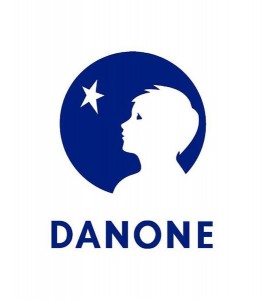Danone Deepens Commitment to Circular Economy

Danone and the Ellen MacArthur Foundation have announced a partnership aimed at accelerating the global transition to a circular economy. For decades, conventional supply chains have been linear; taking, making and disposing of resources often to landfill. With the global population set to reach nine billion by 2050, access to quality food and water is becoming an increasing challenge.
Founded in 2010 by renowned yachtswoman, Dame Ellen MacArthur, the Foundation works to accelerate the transition to a circular economy, collaborating with businesses, government and academia to build a framework for an economy that is restorative and regenerative by design.
As the Foundation’s ninth Global Partner, Danone will embark on a three-year partnership to further embed circular economy principles both inside and outside Danone. It marks an important step in Danone’s quest to produce quality products that preserve natural resources cycles, while also enabling future growth for the business.
Through this partnership, Danone’s teams will access extensive education and training through the Ellen MacArthur Foundation to generate widespread understanding of the circular economy and drive behavioural change. The Foundation will advise and support Danone central and local teams in their effort to transition brands toward circular economy.
 Danone will also become a Core Partner in the Foundation’s New Plastics Economy Initiative, leveraging cross-sector collaboration to re-think and re-design the future of plastics, starting with packaging. Danone’s participation in this initiative will contribute to the company’s efforts to co-build the circular economy of packaging by sourcing sustainable materials and creating a second life for all plastics, as outlined in the company’s Packaging Policy released in November last year.
Danone will also become a Core Partner in the Foundation’s New Plastics Economy Initiative, leveraging cross-sector collaboration to re-think and re-design the future of plastics, starting with packaging. Danone’s participation in this initiative will contribute to the company’s efforts to co-build the circular economy of packaging by sourcing sustainable materials and creating a second life for all plastics, as outlined in the company’s Packaging Policy released in November last year.
Danone Executive Vice President of Strategic Resource Cycles, Pascal De Petrini, says: “At Danone we are committed to treasure every single drop of water or milk or every gram of plastic. Over the past years, we have been transforming our approach, and are convinced that systemic change is key to foster sustainable business growth and preserve natural resource cycles. Working with EMF will allow us to accelerate our shift to a more circular value chain while continuing to bring health through food to as many people as possible.”
Danone operates across four business lines: Fresh Dairy Products, Early Life Nutrition, Waters and Medical Nutrition. Present in over 130 markets, Danone generated sales of €22.4 billion in 2015, with more than half in emerging countries. Danone’s brand portfolio includes both international brands (Activia, Actimel, Danette, Danonino, Danio, evian, Volvic, Nutrilon/Aptamil, Nutricia) and local brands (Oikos, Prostokvashino, Aqua, Bonafont, Mizone, Blédina, Cow & Gate).


































